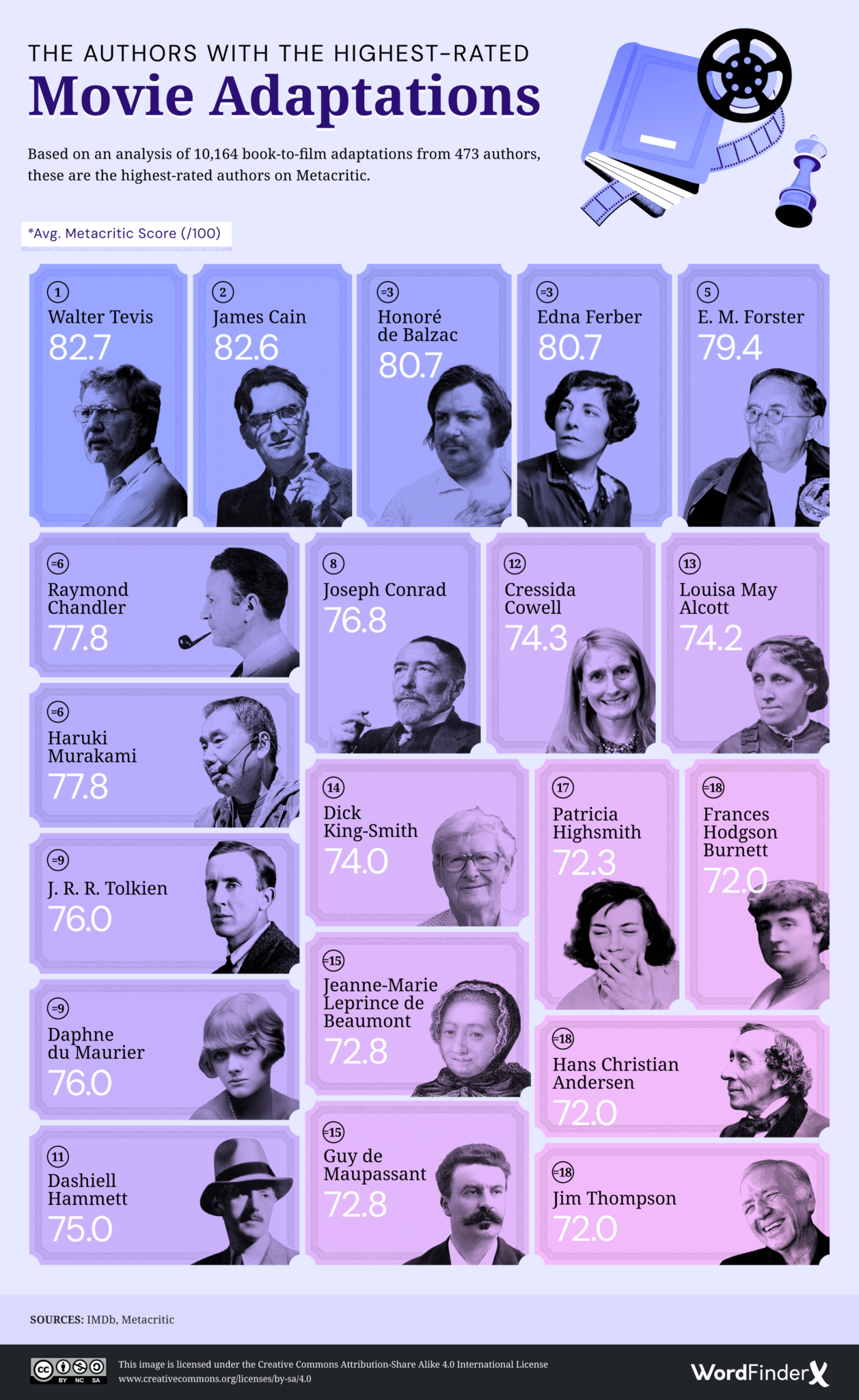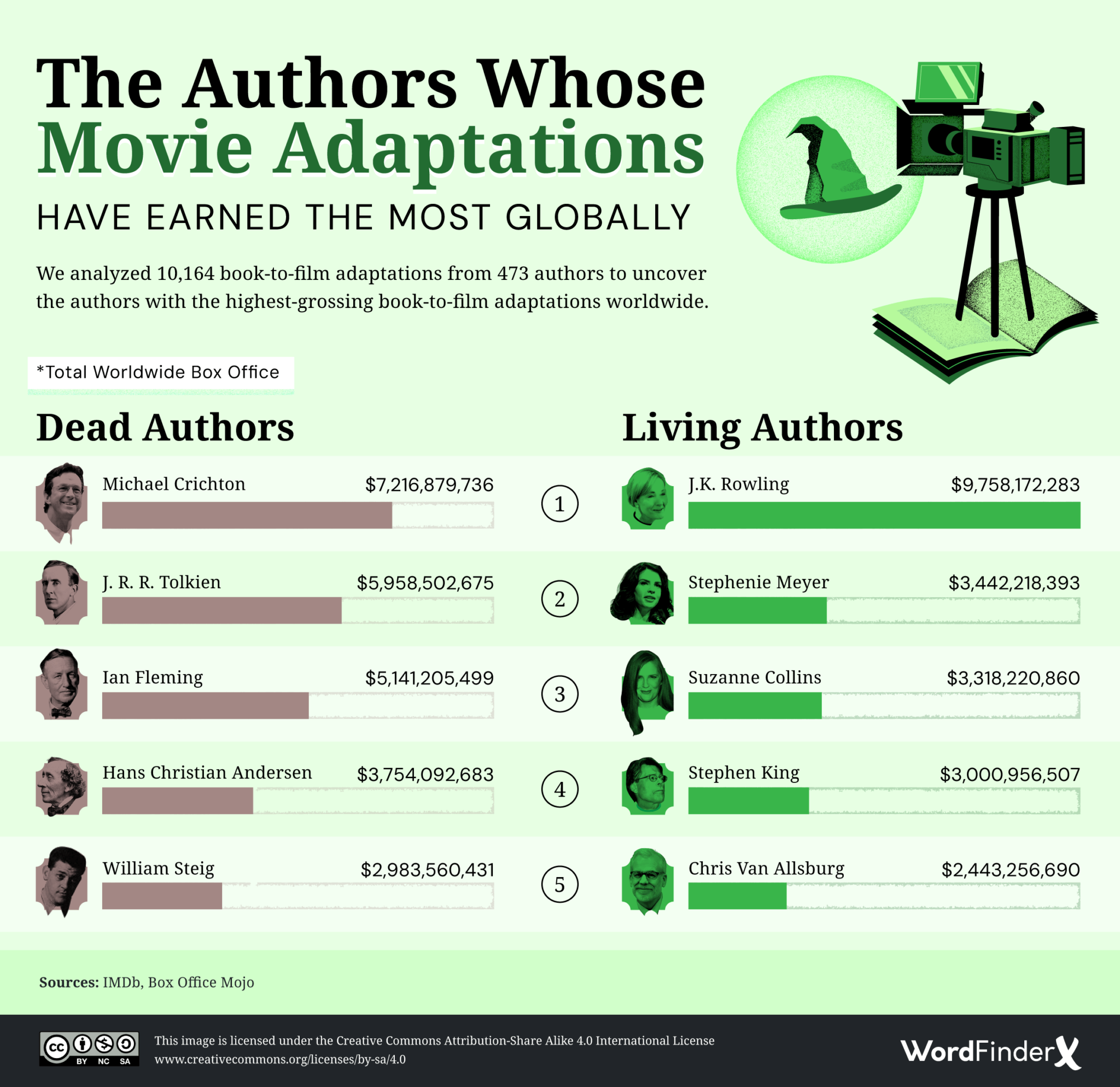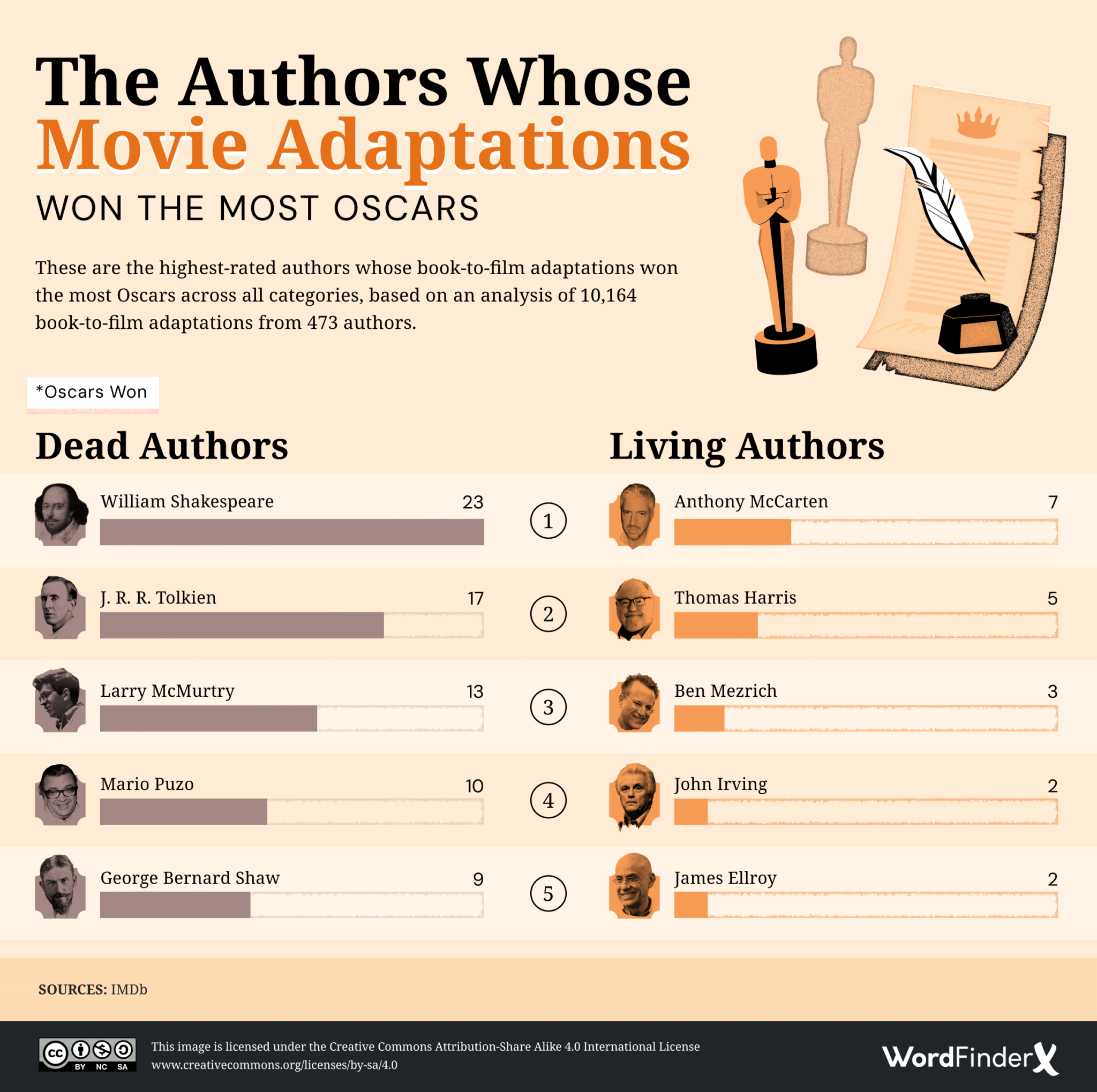It seems every other movie these days is adapted from a book, from Colleen Hoover’s highly-anticipated It Ends With Us to the latest in The Hunger Games franchise.
Because they offer a rich and intricate world for filmmakers to explore, books and novels have always made excellent sources for film adaptations. And while hundreds of books have been adapted for motion pictures, some authors have achieved greater success than others.
In honor of Book Lovers Day (August 9), a team of experts at WordFinderX analyzed the critical and box office performance of 473 authors and 10,164 adaptations to uncover which movie adaptations have been done right — making their writers the most successful authors in movie history.
Here are some of their key findings:
- Walter Tevis (The Hustler, The Man Who Fell to Earth) is the author with the most critically acclaimed movie adaptations, rating an average of 82.7 on Metacritic.
- J. R. R. Tolkien (The Hobbit, The Lord of the Rings) is the best box office bet of any author who’s died, with adaptations of his movies averaging $851,214,668 at the box office.
- J. K. Rowling (Harry Potter, Fantastic Beasts) is the most lucrative author of all, with adaptations of her books grossing $9,758,172,283 ($9.76 billion).
- William Shakespeare (Romeo and Juliet, Hamlet, A Midsummer Night’s Dream) is the writer whose adaptations have won the most Oscars (23).
Check out the full extent of their findings in the graphics below, and see what titles you recognize!

You’ll notice the top 20 is dominated by authors who are no longer with us. Drive My Car author Haruki Murakami and How to Train Your Dragon’s Cressida Cowell are the only living authors on this list, while the late Walter Tevis and James M. Cain duke it out for the number one spot.

You’re likely to be familiar with many of the top-grossing authors, as their names are as well-known as their creations: James Bond, Katniss, Bella and Edward, and Frodo.

You’ll want to check out these Oscar-winning adaptations — especially any of the unique spins on Shakespeare’s work.
Want to dive deeper into their findings? Check out the original article published on WordFinderX.

